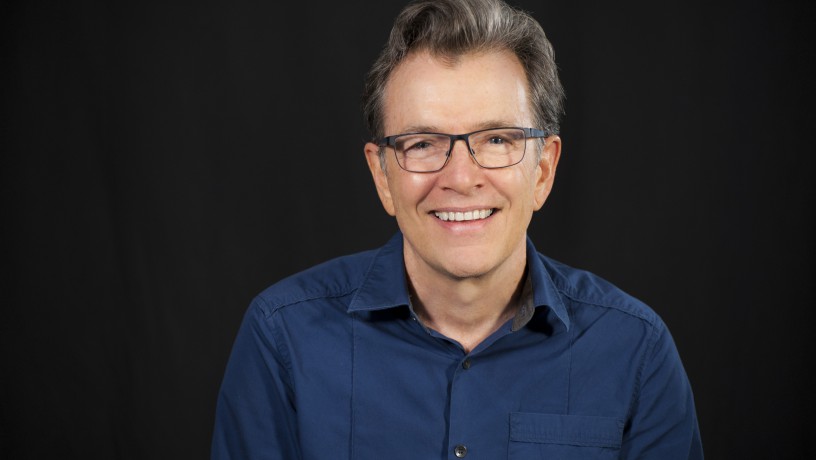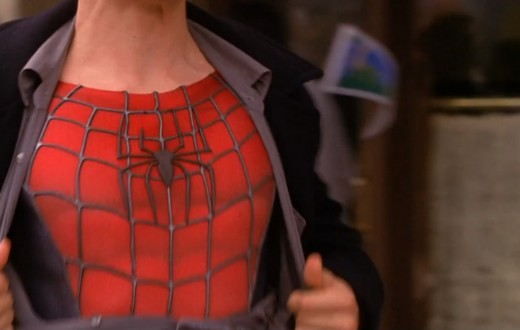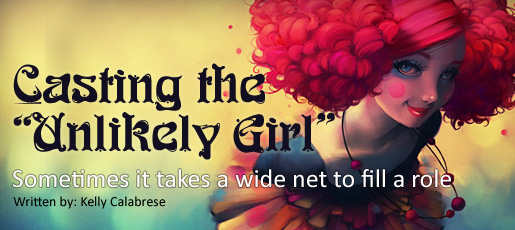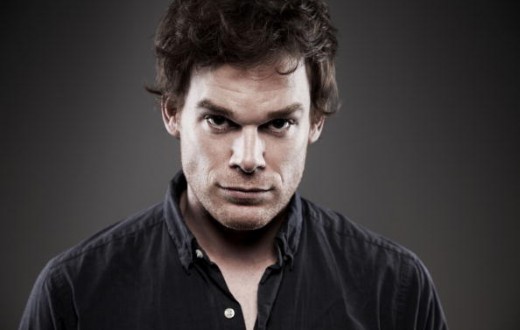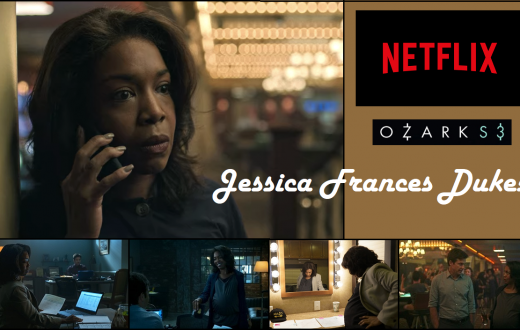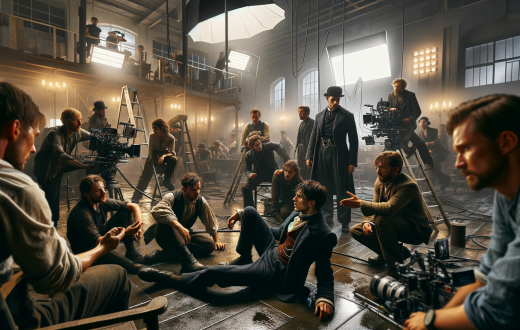New York native and L.A. transplant Michael Donovan has been involved in show business for a very long time. In fact, reading his CV, you start to wonder if the guy ever sleeps. His recent four Artios award nominations brings his total to 30 noms, with 7 wins racked up so far.
“I’m pretty much known as a theater guy on this coast,” Donovan says of the over 900 plays he’s cast, but he’s hardly confined to one medium. Donovan has also cast over 50 films (“So This Is Christmas,” “Flight 93: The Flight That Fought Back”), about a dozen series (“Blood Relatives”), and over a thousand commercials.
Donovan went to school originally to be a teacher, but quickly fell in with a bad crowd – the kind of crowd that got him hooked on acting and musical theater, leading to a love and lifelong passion for the art, both on stage and in the casting room.
These days Donovan teaches senior acting classes at UCLA when he’s not casting yet another project, or traveling around the U.S. to guest-lecture at colleges and universities on the ins and outs of the acting business.
We caught up with Donovan as he was returning from a walk with his dogs in the Hollywood Dell neighborhood in the hills above Hollywood.
Making the switch from acting and directing to casting:
I moved to L.A., and directed a play in Hollywood that another casting director came to see. She came backstage and was very enthusiastic about the direction, and asked me if I’d be interested in directing [commercial] casting sessions. And I had no idea what she was talking about. Two days later I was hired, and I was like, ‘Oh my God…’ and I was winging it. But it was really just adjusting to the speed and the pressure of staying on time and figuring out how to make all that work. And anyway I found after a very short time that I loved it, and it became my survival job. I would freelance and work with another casting director, and basically when I was available I’d do that. And then eventually, over a couple of years it became more and more about the casting and less about the acting.
The advantage of casting so many different types of projects:
What is exciting to me about what I do is that if I meet you for one medium, I have no problem bringing you in on another one. I feel like an actor’s an actor. That’s kind of how I got started: I knew all these actors who weren’t getting theatrical work, and I was like, “Why not?” So I started booking them theatrically.
Circling back to teaching:
I went to college to become a teacher, which is ironic, because I’m teaching [at UCLA] now. So I added the whole drama major later. I guess part of it was just making the commitment. I made the commitment later. Had I known earlier I might have done that differently, but no regrets. Those years taught me to be a good teacher as well. What I love about teaching is I get to share the screw-ups that I did.
On not treating actors like sh*t:
My years as an actor hopefully made me a much better casting director. I protect actors to the best of my ability, I have empathy for actors, and I know how to speak to actors. I know what I wanted to hear at an audition, and I often felt that I didn’t get what I needed to know at an audition. I remember auditioning before I became a casting director, thinking, “Can’t someone do this better? Do we have to be treated like shit?”
The importance of having a theater background:
For theater there’s a different energy than being in say, a film: in knowing how to take the stage, the ability to stay in character over a period of two and half hours or whatever it might be. That’s a skill I look for. I don’t care what I’m casting, I want somebody who’s theater-trained. I think nothing trains you better than that.
And actually, don’t listen when they tell you to ‘do less’ on film:
Film tends to be more subtle. I use the word “condensed.” Everybody always talks about this in class, saying “Do less, do less.” That’s not true. Don’t do less, just condense what you’re doing. By doing less you end up eliminating some of the wonderful work you’re about to do, and I don’t want that. I just want you to find a way to condense it down.
Common sense and self-taping:
Can I talk about self-taping? Let’s talk about self-taping for a second: Yikes, people. Come on. I got a self-tape a couple years ago, and the guy is standing in front of a bookcase that’s filled with books. And a few seconds in – the tape is not good – and I found myself turning my head and reading the titles of the books that were on the shelf. So here’s the deal: find something that is a completely plain, nondescript background. It doesn’t have to be brilliantly lit, but you have to be lit. And you have the huge advantage of, if it didn’t work the first time, don’t send me that take! Do it until you get one you’re proud of! That sounds so simplistic, but… I don’t need it to look like a full production company did it, but I’d like to be able to see you and hear you clearly and know that it’s your best take on the material.
The two sides to the controversy over L.A. CDs running workshops and classes:
It’s really a shame, because basically [casting directors’ classes and workshops] are pretty much gone. And yeah, there were a few bad apples. But for the most part these were hard-working people with small businesses and it was a great way for actors, in a low-pressure situation, to get in front of us as casting directors. The bad part of it was people were saying, “Oh that’s a paid audition.” It wasn’t a paid audition. It was a class. I taught when I did these workshops. It was such a huge advantage for the actors being taught by people who are actually doing it. Part of the problem with a lot of academia across the country is that these people used to do it. They still have very valuable things to teach, but the business is changing constantly. The advantage of the workshops was going to these things with people who are currently doing it, and can tell you the most up to date information.
Listen up, actors: pay attention to the breakdown!
If you’re looking for advice, I’d tell people, I’m okay with pushing the envelope a little, but if we said all ethnicities, we meant all ethnicities. If we said Asian, we meant Asian. You know what I mean? There’s a reason why it’s either a certain ethnicity or it isn’t. There’s a reason why it’s a certain hair color or it isn’t. And to just ignore that, to me you end up looking unprofessional.
And update your headshot:
The same thing applies to pictures, if you send in pictures that don’t look like you anymore. So now you end up going in on something you’re wrong for. It’s important because you missed the thing you were right for! You changed your hair color, you gained weight, lost weight, you muscled up – any of those things. You are not presenting an accurate picture of what your current situation is. I don’t think actors change their pictures often enough.
And by the way, bring your headshot to every audition:
I do some casting in New York too, and I find it’s less of a problem there, but a certain amount of actors at every audition walk in without a headshot, and that’s not cool. The thing is, sometimes we don’t need it. For commercials you almost never need it. But for theatrical auditions, they look at it while you’re auditioning! Even if you walk in and we say we don’t need it, how did it hurt you to have it? Particularly someone like me, who does multiple projects at any given time, one of my other producers might wander over and say hello, or a director might pop in, and they might really like the actor and ask if you have a headshot. And you have to say, ‘Uhhh, no, I don’t have one…’ Come on. I just think it’s your business card, and you need to have your business card with you. If you get to be Meryl Streep, then you don’t need to bring in a headshot.
On preparation:
The cardinal sin is being unprepared. It’s just unforgivable. Whatever happened in your life – you were on set all night, you were working at your other job, you just don’t feel well, any of those reasons – I think the better choice is to have your agent call and ask if you can reschedule. If we can’t reschedule, you have to decide if you’re prepared enough to go in, or if you’re better off just canceling, because again, you’re wasting time. You’re wasting your time and you’re wasting our time.
Show them what you can do, not what you can’t do:
Don’t choose to audition with a role you cannot play. If you’re auditioning with something that just makes no sense, a role that’s too young for you, too old for you, just completely wrong for you, it just doesn’t make any sense. Choose something that shows you off well. I always tell my musical theater students, don’t show me what you cannot do.
On bringing joy and a love for acting to the casting room:
I have a commitment to every single audition that I do: I bring in people that I haven’t met. I’m always excited about my day. I love what I do. I sit there and I have talented people sing to me every day, I have talented people read to me every day – it’s a very nice thing that I do.

